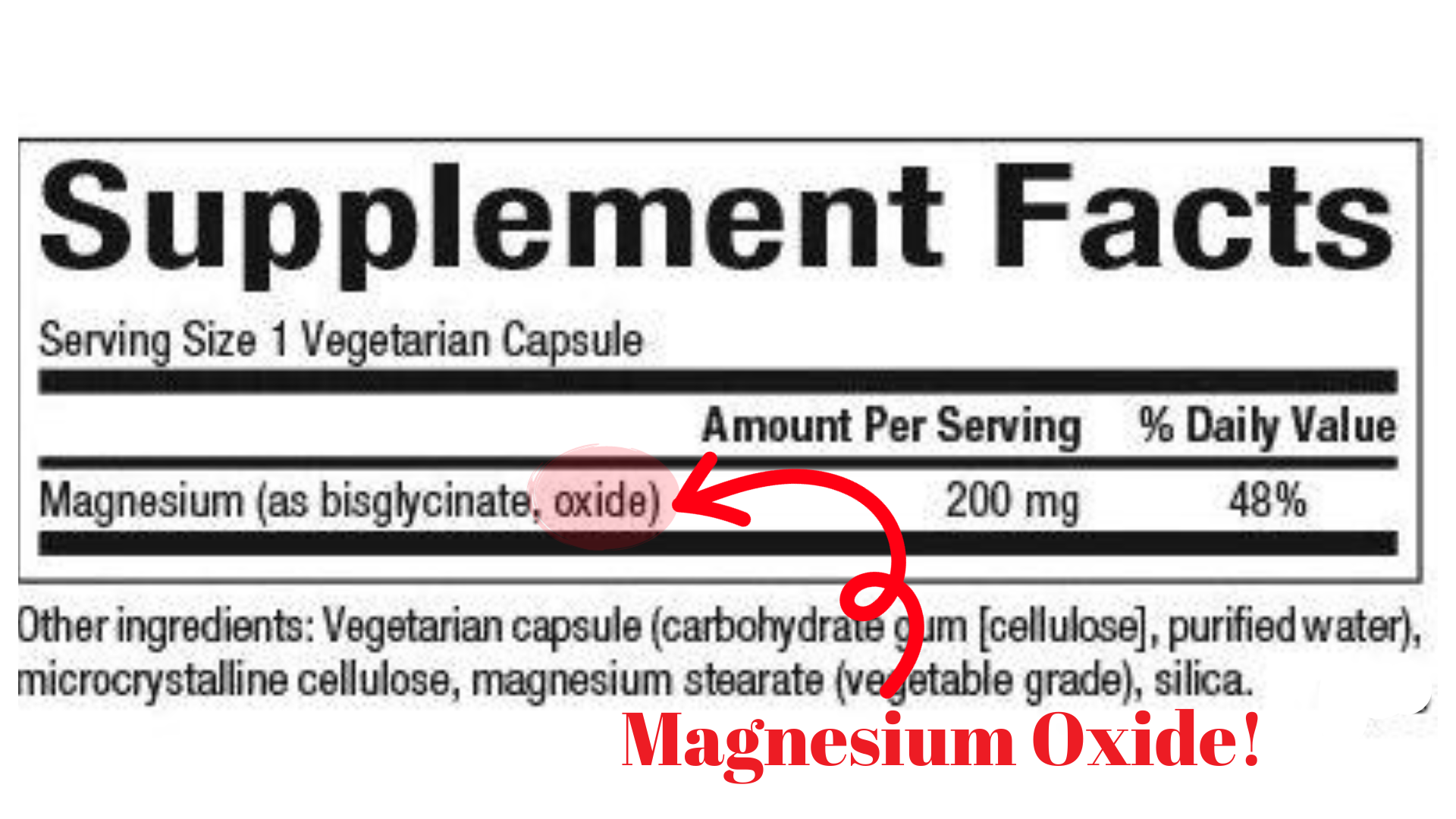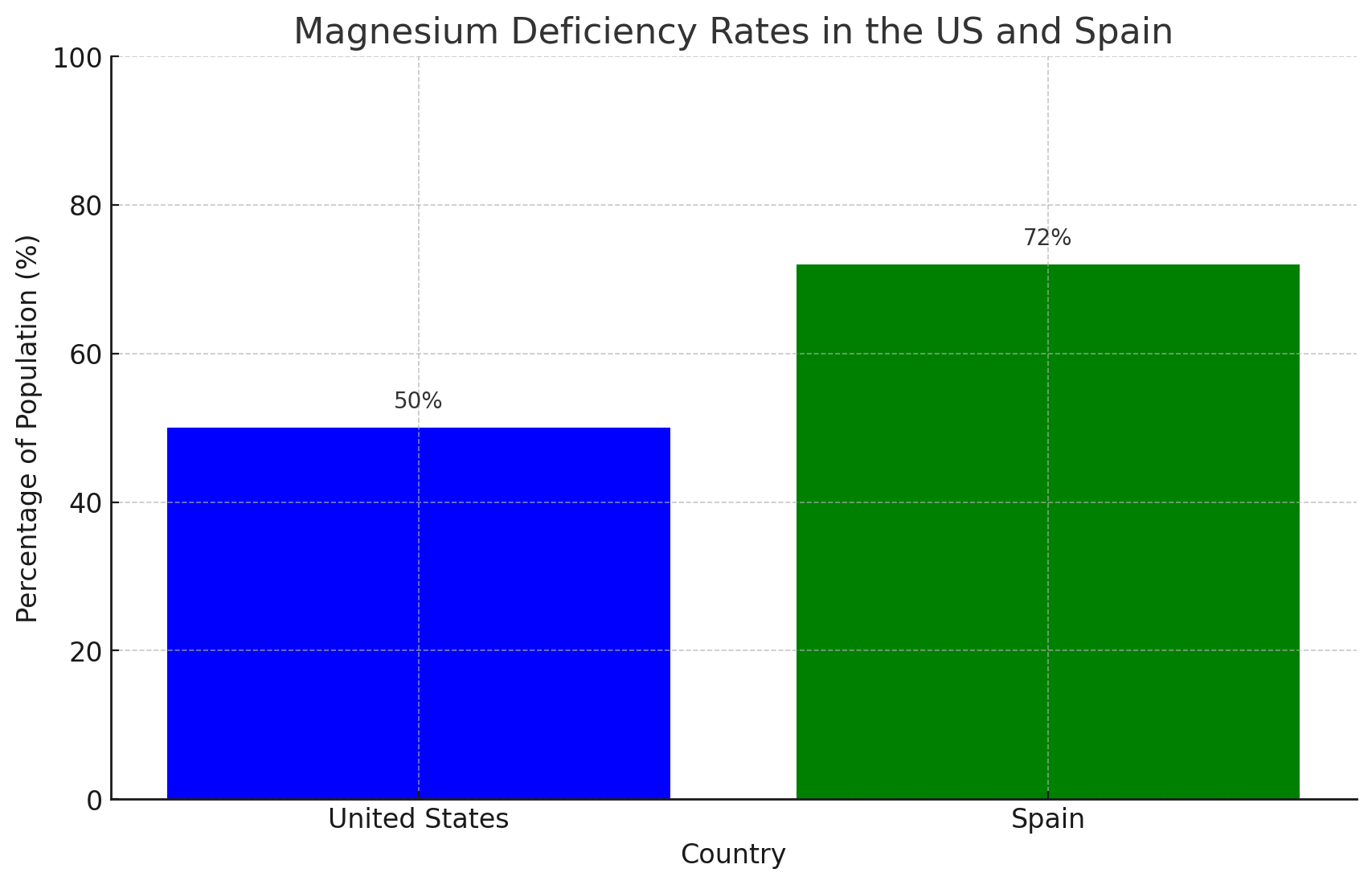Combating Osteoporosis: The Role of Magnesium Bisglycinate in Bone Health for Seniors
Overview of Osteoporosis in Seniors
Osteoporosis is marked by weakened bones and a higher fracture risk. It is a major health concern for seniors. As we age, bones lose density and become more fragile. Osteoporosis is often not noticed until a fracture occurs. It is driven by hormonal changes (lower testosterone in men and lower estrogen in women – especially postmenopausal). Seniors are also generally more sedentary and they have a decreased ability for nutrient absorption – both factors contribute to an increased risk of osteoporosis.
We’ve all heard sad stories of a senior who experiences a minor fall on a sidewalk. Their weak condition causes a bone break and they wind up in a hospital. Then this leads to other health conditions, and sadly, often results in death from something that wasn’t directly related to the original fall. And it all started with that little fall on a sidewalk.
With the aging global population, addressing bone health has become more important than ever.
Role of Magnesium in Bone Health
Magnesium is crucial for optimal bone health, particularly in seniors. It is essential for bone matrix formation. It also aids in the activation of vitamin D, which is necessary for calcium absorption. Sufficient magnesium levels help to increase bone density and strength, thereby lowering the risk of osteoporosis.
Low magnesium levels are associated with weaker bones and a higher fracture risk. More than half of the population isn’t getting enough magnesium. Seniors in particular often struggle with maintaining adequate magnesium levels due to dietary restrictions and reduced nutrient absorption. This is why proper magnesium supplementation can be so important for them.
The Problem with Most Magnesium Supplements
Most magnesium supplements absorb very poorly.
The most common magnesium supplement is magnesium oxide. The problem is that magnesium oxide absorbs at a rate of only 4%. This means that if you take it, you are essentially getting very little magnesium into your body. The other problem with magnesium oxide is that it causes diarrhea. This is a huge problem, and can be particularly debilitating for seniors.
Magnesium oxide is at one extreme end of the spectrum, but most other magnesium supplements, magnesium citrate for example, also don’t absorb very well and still cause diarrhea.
Why Magnesium Bisglycinate is Best for Seniors
Magnesium bisglycinate (same as magnesium glycinate) is the most effective for seniors due to its excellent bioavailability (absorption). This form is gentler on the digestive system and more efficiently utilized by the body, including in bone cell support.
Read about magnesium that doesn’t cause diarrhea.
Note: In the section below, you will find an extremely important point about how to choose a magnesium bisglycinate (or glycinate) supplement.
Non Buffered Magnesium Bisglycinate is Key
This is very important to understand. Not all magnesium glycinate (bisglycinate) is the same. Most magnesium glycinate and bisglycinate supplements are buffered. That means they are mixed with large amounts of magnesium oxide. Most supplement companies don’t even mention this on the label either. You might see it on the back of a label, but very often not.
Here is a photo of the back of a label of a typical magnesium bisglycinate supplement. Notice that it has been buffered with magnesium oxide. This isn’t mentioned on the front of the label, and most people don’t even notice, or know what this means.

The magnesium oxide is causing a lot of problems like poor absorption and diarrhea.
So even if your doctor recommends magnesium glycinate or magnesium bisglycinate, make sure you mention this topic about “buffered” magnesium. Unfortunately, most doctors and medical practitioners aren’t even aware of this fact. Share this article with them to let them know.
Magnesium Deficiency
Significant portions of populations, including about 50% in the US and 72% in Spain, do not consume the daily requirement of magnesium. These numbers are for the general population and they are similar all over the world. The elderly often experience much higher deficiency rates of magnesium, especially menopausal women.
Magnesium Deficiency Rates in the US and Spain

Source:
US: Research published in Advances in Nutrition, only about 50 percent of the United States population consumes the daily requirement of magnesium from their diets.
A study published in Nutrients reported that 72 percent of the Spanish population did not meet the EFSA-recommended intake of magnesium from their diets.
Recommended Dosage
The recommended daily dosage of magnesium bisglycinate for seniors is typically in the range of 300-400 mg, but this may vary, depending on the individual. These numbers are also referring to “elemental magnesium”.
Understanding “elemental magnesium” is very important when determining magnesium needs as well. We have a great explanation of elemental magnesium here.
Consult your healthcare practitioner if you need help determining your specific needs.
For more detailed information on check out this article on magnesium dosing.
Side Effects and Safety
The most common side effect of magnesium supplements is diarrhea. We discussed this in detail above. Non buffered magnesium bisglycinate has by far the least number of side effects of any magnesium supplement.
Here is a list of magnesium side effects to be aware of:
- Gastrointestinal Issues: Common side effects include diarrhea, stomach cramps, and nausea. (Rare with non buffered magnesium bisglycinate)
- Laxative Effect: High doses of magnesium can act as a laxative, cause diarrhea, and potentially lead to dehydration and electrolyte imbalances. (Rare with non buffered magnesium bisglycinate)
- Interference with Medications: Magnesium can potentially interact with certain medications, including diuretics, antibiotics, and osteoporosis medications. (Always check with your doctor)
- Kidney Function: People with kidney disease should be cautious and check with their doctor before supplementing with magnesium.
- Overdose Risk: While rare, excessive magnesium intake can lead to magnesium toxicity. Symptoms include low blood pressure, irregular heartbeat, and mental confusion.
- Blood Sugar Control: Magnesium can affect blood sugar levels, which is particularly relevant for people with diabetes or those on medications that affect blood sugar.
Natural Ways for Seniors to Enhance Bone Health
Beyond supplements, seniors can adopt other strategies for bone health:
- Strength Training: Increases bone density.
- Optimal Zinc Levels: Vital for bone-building cells. (Learn about zinc bisglycinate)
- Healthy Diet: Rich in calcium, vitamin D, and protein.
- Avoid Smoking and Limit Alcohol: Both harmful to bones.
- Sunlight Exposure: For vitamin D production.
Conclusion
Effective bone health management is crucial for seniors, with non buffered magnesium bisglycinate being a key supplement to help with this. However, a holistic approach including diet, exercise, and lifestyle changes is equally important. Proactive steps and professional guidance are recommended for maintaining strong bones into senior years.
Below we will share some interesting scientific studies on this topic…
Scientific Evidence Supporting Magnesium Supplementation

6 Studies:
1. Magnesium and Osteoporosis: Current State of Knowledge and Future Research Directions
- Study Overview: A review discussing the role of magnesium in bone health and its implications for osteoporosis.
- Participants: Not applicable, as this is a review of existing literature.
- Key Findings: Magnesium is crucial for bone health, affecting bone mineral density and influencing the risk of osteoporosis. Studies have shown a correlation between low magnesium intake and reduced bone mineral density. Magnesium supplementation has been found beneficial in some cases of osteoporosis, particularly in populations with magnesium deficiency.
2. Study on Dietary Magnesium and Bone Health (2009)
- Study Overview: EFSA Panel on Dietetic Products, Nutrition and Allergies assessing the relationship between dietary magnesium and bone health.
- Participants: Broad demographic analysis
- Key Findings: Established a direct relationship between dietary magnesium intake and improved bone health. Supports the importance of adequate magnesium intake for bone health maintenance.
3. Magnesium Homeostasis and Bone Integrity (2012)
- Study Overview: Research on magnesium homeostasis and its impact on bone integrity.
- Participants: Review of various studies with diverse participants.
- Key Findings: Emphasizes the need for balanced magnesium levels for optimal bone health.
4. Magnesium Supplementation in Menopausal Women (1998)
- Study Overview: Study on magnesium supplementation, including magnesium hydroxide, in menopausal women.
- Participants: Menopausal women, a group at higher risk for osteoporosis.
- Key Findings: Magnesium supplementation significantly increased bone density and helped prevent fractures. Magnesium supplementation can be beneficial for bone health in menopausal women.
5. The Effects of Magnesium Supplementation on Bone Turnover and Density in Older Adults (2021)
- Study Overview: A randomized controlled trial examining the effects of magnesium supplementation on bone density in healthy older adults.
- Participants: Healthy older adults.
- Key Findings: Magnesium supplementation could be a valuable strategy for improving bone health and reducing osteoporosis risk in the elderly.
6. Impact of Magnesium on Bone Health in Older Adults: A systematic review and meta-analysis
- Study Overview: This study is a meta-analysis of randomized controlled trials focusing on the impact of magnesium supplementation on bone mineral density (BMD).
- Participants: Multiple randomized controlled trials, with a diverse group of participants, including different age groups and genders.
- Key Findings: The study concluded that magnesium supplementation positively affects bone mineral density, particularly in populations at risk of magnesium deficiency.
Disclaimer: This article is for informational purposes only. This information is meant to share and discuss with your own doctor or healthcare practitioner. It is not intended to override their recommendations.

Andrew Best
Cofounder - Director of R&D
Andrew educates consumers about the latest scientific research in the natural health supplement field.


